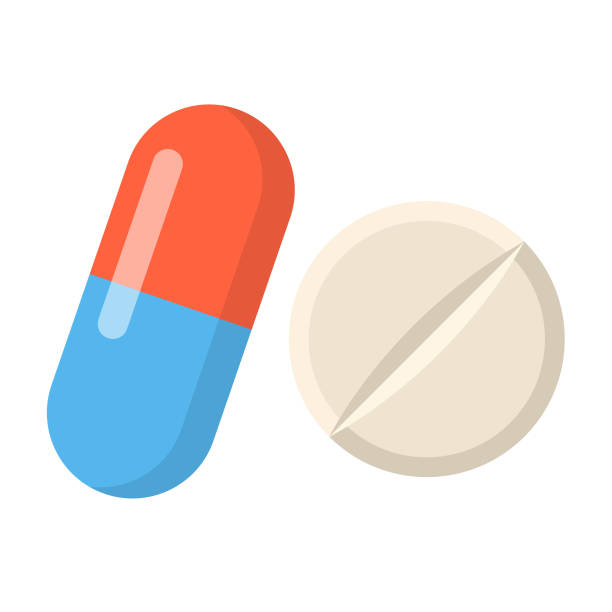Mycophenolic acid
Indications
Prophylaxis of organ rejection in kidney transplant: Mycophenolic acid is indicated for the prophylaxis of organ rejection in adult patients receiving a kidney transplant. It is indicated for the prophylaxis of organ rejection in pediatric patients 5 years of age and older who are at least 6 months post kidney transplant.
Pharmacology
Mycophenolic acid delayed-release tablets are enteric coated formulation of mycophenolate sodium that delivers the active moiety mycophenolic acid. It is an immunosuppressive agent. It is an uncompetitive and reversible inhibitor of inosine monophosphate dehydrogenase (IMPDH). Therefore, it inhibits the de novo pathway of guanosine nucleotide synthesis without incorporation to DNA. Mycophenolic acid has cytostatic effects on lymphocytes. It has been shown to prevent the occurrence of acute rejection of kidney and heart allotransplantation. It also decreases antibody production.
Dosage And Administration
Dosage in adult kidney transplant patients: The recommended dose of Mycophenolic acid is 720 mg administered twice daily (1440 mg total daily dose).
Dosage in pediatric kidney transplant patients: The recommended dose of Mycophenolic acid in conversion (at least 6 months post-transplant) pediatric patients age 5 years and older is 400 mg/m2 body surface area (BSA) administered twice daily (up to a maximum dose of 720 mg administered twice daily). Pediatric patients with a BSA of 1.19 to 1.58 m2 may be dosed either with three Mycophenolic acid 180 mg tablets, or one 180 mg tablet plus one 360 mg tablet twice daily (1080 mg daily dose). Patients with a BSA of >1.58 m2 may be dosed either with four Mycophenolic acid 180 mg tablets, or two Mycophenolic acid 360 mg tablets twice daily (1440 mg daily dose).
Mycophenolic acid tablets should be taken on an empty stomach, 1 hour before or 2 hours after food intake. Tablets should not be crushed, chewed, or cut prior to ingesting. The tablets should be swallowed whole in order to maintain the integrity of the enteric coating.
Interaction
Caution should be exercised with concomitant administration of Antacids, Azathioprine, Cyclosporin, Rifampin, Sevelamer, Cholestyramine, Acyclovir, Metronidazole, Hormonal contraceptives as these medicines may decrease Mycophenolic acid concentration.
Contraindications
Mycophenolic acid delayed-release tablets and Mycophenolate mofetil tablets and capsules should not be used interchangeably without physician supervision because the rate of absorption following the administration of these two products is not equivalent.
Side Effects
The most common adverse reactions (≥20%) associated with the administration of Mycophenolic acid are anemia, leukopenia, constipation, diarrhea, vomiting, dyspepsia, urinary tract infection, CMV infection, insomnia, and postoperative pain.
Pregnancy And Lactation
Pregnancy Category D. Can cause fetal harm.
Lactation: Discontinue Mycophenolic acid or discontinue nursing while on treatment or within 6 weeks after stopping therapy. Take into consideration the importance of the drug to the mother.
Precautions And Warnings
Mycophenolic acid tablets are used with caution because it-
- Can cause embryofetal toxicity
- Can increase new or reactive viral infections
- Can cause blood dyscrasias including pure red cell aplasia
- Can cause serious GI tract complications (gastrointestinal bleeding, perforations and ulcers)
- May increase the risk of developing lymphomas and other malignancies, particularly of the skin
- Use of live vaccine should be avoided during treatment with Mycophenolic acid
Overdose Effects
No data are available with regard to overdose.
Therapeutic Class
Immunosuppressant
Storage Conditions
Store at 25° C and Keep out of reach of children.
